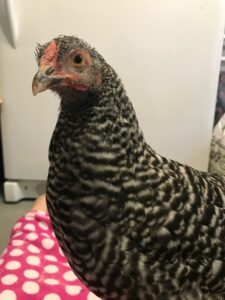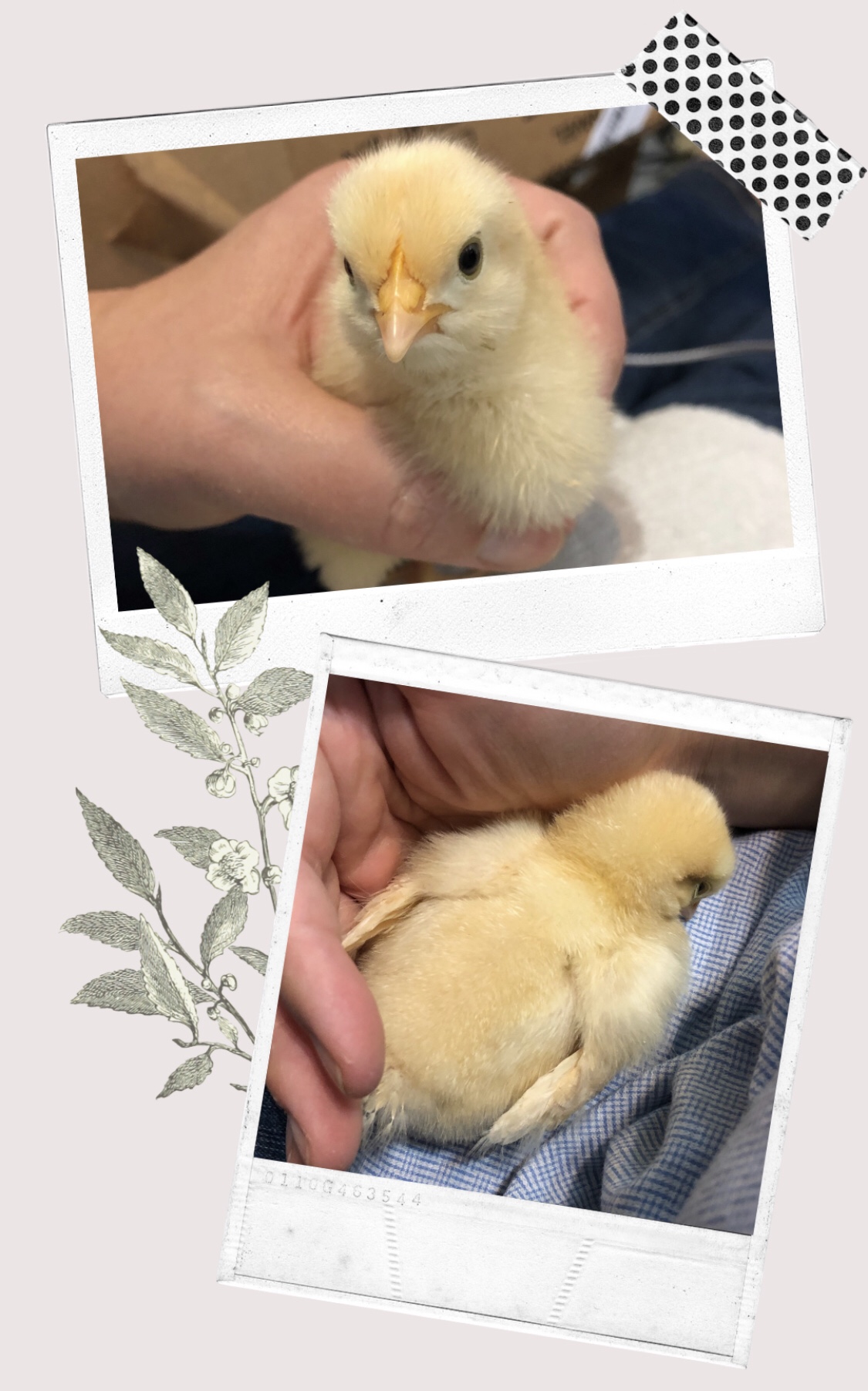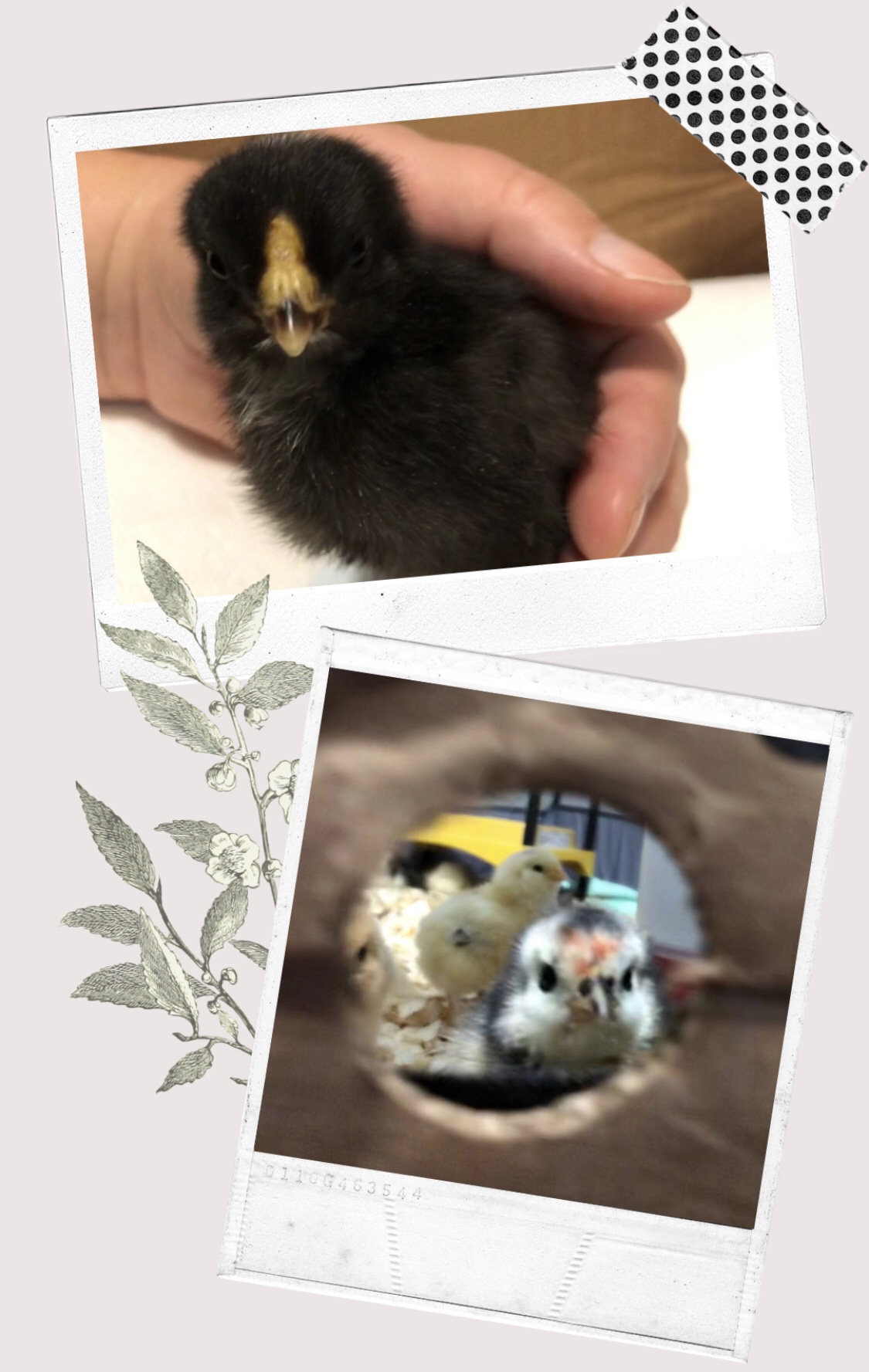“How did you know your chicken was sick, so I’ll know what to look for in my own chickens?”
That’s what the Tractor Supply employee asked me as she attempted to help me with medicine dosages.
I wasn’t raised with chickens, so I dreaded the potential of a sick chick! However, it really wasn’t as scary as I imagined. Knowledge truly is power. Let me explain…
One day, our girl was completely FINE… The next day, she was VERY lethargic, struggling to keep both eyes open, She was a pitiable sight. She was also slow and fluid in her motions — somethin’ aint right if your chickens aren’t actin’ spastic or jerky in their movements! If she was left untreated, I felt as though we would have lost her within 24-48 hours, easily.
I started by separating her from the flock. I prepared a towel-lined dog kennel in our laundry room with food (soaked grain) and water (mixed with electrolytes). She wasn’t interested, so… I mixed raw egg yolk with electrolytes, probiotics, and nutri drench to feed her with a needleless syringe (I had to play with dripping a drop or two on her beak until she was strong enough to peck at it). That interested her enough to put my mind at ease. You can even add green tea, as seen here:
After observing her for a couple of hours, I noticed she was passing a lot of blood in her stool. Oh my! While blood is not a final determining factor (a vet can test to confirm – we didn’t), my best guess was that she had Coccidiosis. It is a common intestinal disease caused by several species of parasites. The parasites multiply rapidly by damaging the intestinal lining, preventing chickens from absorbing nutrients in their food.
I wondered HOW in the world she came in contact with this, as I had tossed several handfuls of our grass (with attached roots/soil) from our property in their puppy tent as little chicks to expose them young. BUT I didn’t account for the possibility of other birds transferring foreign matter into our yard, potentially exposing the flock to unfamiliar-to-them things. Those microscopic cooties are everywhere! For all we knew, we could have walked them in the chicken run wearing our rubber boots!
I tend to take the holistic approach, so the last thing I WANTED to do was medicate, but I knew she needed more than garlic and ACV to bounce back! We would need to try a recommended medication called Corid, to give her a fighting chance. I found the most help for proper dosing on the BackYard Chickens site – comments from people who’ve been there, done that. –>> BackYard Chickens – Learn How to Raise Chickens.
Liquid dose:
2 teaspoons per gallon for five days, then 1/2 teaspoon for 7-14 days.
Powder dose:
1.5 teaspoons per gallon for five days, then 1/3 teaspoon for 7-14 days.
The preventative dose (.006%) for Corid Powder is 1/3 teaspoon.
The preventative dose (.006%) for Corid liquid is 1/2 teaspoon.
The moderate outbreak dose (.012%) for Corid Powder is 3/4 teaspoon.
The moderate outbreak dose (.012%) for Corid liquid is 1 teaspoon.
The severe outbreak dose (.024%) for Corid Powder is 1.5 teaspoons
The severe outbreak dose (.024%) for Corid liquid is 2 teaspoon.
I used the severe outbreak (powder) dose, offered as the only source of drinking water. I also added this water to the egg yolk mixture (mentioned above) and soaked her feed in this medicated water, as well. Her favorite treat was Brewers nutritional yeast, so I sprinkled that on top of: scrambled eggs, the yolk mixture in a small bowl, or even her feed.
For one week, we treated the entire flock (just in case) and then simply kept a close eye on all of them for several weeks, looking for the slightest symptom… which included scanning their droppings for any blood. Coccidiosis is highly contagious. Luckily, no other chickens developed symptoms. But now I’m always on the lookout, seeing just how quickly those symptoms developed!
You might be interested in re-treating, as is generally recommended. We didn’t.

As for our Daisy girl, we treated her indoors until she was acting like her old spunky self, no longer passing blood. I sat with her a couple of times each day so that I could better assess her. She was good to go, back with the flock in 4 days, as if nothing had ever happened!
Note: While our girls hadn’t started producing eggs, according to the FDA, amprolium (corid) is approved for use in laying hens, so (according to them) it’s safe to eat their eggs.
I don’t have all of this homestead gig figured out – not even close, but now I know I can do this one thing. Hope you find this helpful!
Blessings! xoxo

